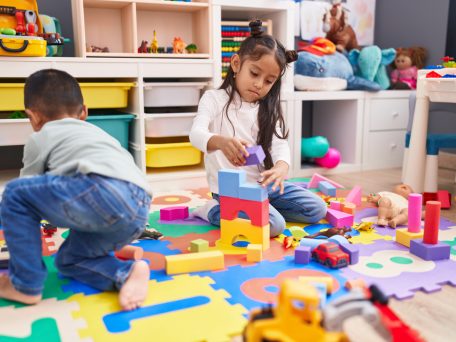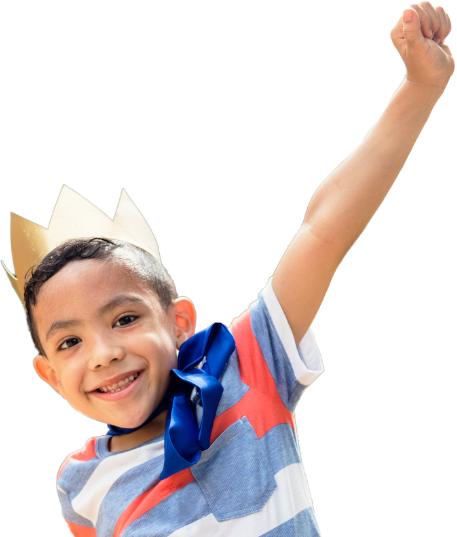- Better Behavior Kids who have been to preschool learn how to manage their emotions better. They have more chances to interact with teachers and their peers than children who grew up without early education. They have more opportunities to practice good behavior, and a better emotional intelligence by the time they reach kindergarten than those who don’t. Learning how to interact with others beyond a parent or sibling relationship is important. The ability to be with other children who are learning and growing in the same way can be of great benefit to young children.
- Better Learning Skills Children who have been through preschool know what to expect in a learning environment. They’re familiar with classroom procedures, have the elements of reading, writing and math down, and are prepared to learn new things. This not only makes transitioning into Kindergarten easier for them, it frees up their focus for learning new skills, instead of simply getting used to the idea of learning.
- High Earners Kids who have gone through preschool are more likely to have a higher wage than kids that don’t, as a working adult. In a study conducted on preschool and prosperity, kids who went to preschool made on average 25% more than those who didn’t. Those aren’t the only people who benefited. Their parents did too. Children of parents who sent their kids to preschool were able to earn more too.
The Benefits of Early Childhood Education: Setting the Foundation for Success

There is a common theme among loving and caring parents: They want the best for their children. Everything from the snacks provided to their kids, to the toys and books, to the time spent with them, is all aimed at helping them turn into successful young adults.
Good nutrition, educational toys, and reading to your child are all vital to giving your child the best start in life, but there’s one more thing you can do to help them be successful. You can enroll them in some form of early childhood education.
There are many studies out there showing that children who have gone to preschool or other early education programs end up more successful than those who don’t. According to a 2017 study, birth to age 5 are a critical time for learning in children, and can establish study and behavioral skills that will last their whole life.
Another study confirmed this, with higher high school graduation rates, and fewer needs for special education in children who had early childhood education.
So what does early education do for young children?







